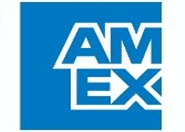The Blockchain: Digital Security or Virtual Paper Trail?

On December 15, 2015, the Securities and Exchange Commission approved a plan from online retailer Overstock.com to issue public securities via the Internet using the blockchain.
A key element in the security of cryptocurrency is the blockchain. A blockchain is an encrypted transaction database, hardened against tampering, even by operators, shared by every node participating in the cryptocurrency’s protocol. A full copy of the blockchain contains every transaction that ever took place with the currency, making it nearly impossible to double-spend the currency. With this information, it can be determined how much value belonged to each wallet at any time. The most widely known of the application of the blockchain database is the public ledger of transactions.
Considering the technology is relatively new, it has already become an age-old question: which one is better? Four little words which can spark hours of debate amongst certain individuals; both methods have their benefits and disadvantages, all of which are subjective to the user’s needs.
The primary consideration that is often overlooked is that credit cards offer one thing that cryptocurrencies don’t: a line of credit. While the majority of end-users typically opt to use their Card Association-branded debit card, which is linked to a bank account, they also have the option to pay for goods or services using borrowed money, which they’ve promised to repay at a later time. Cryptocurrencies, however, are bought and paid for before the end-user receives them.
Cryptocurrency is anonymous and non-refundable which offers both buyer and seller protection in various aspects of a transaction. The buyer’s anonymity is protected by assigning an address, comprised of letters and numbers, which represents their digital wallet, where they can receive and send cryptocurrency. Of course, in the case of purchasing a tangible product, anonymity is forsaken when the seller is shipping a product. Cryptocurrency transactions are also non-refundable. In order to refund a purchase, the seller would need to send the amount back to the seller in a separate transaction; a credit card offers the buyer a layer of protection and the option to call the issuing bank to dispute a transaction.
Each of these features can work both for and against the seller and buyer. The seller is protected against frivolous chargebacks by using the nonrefundable method of cryptocurrency but that leaves the buyer unprotected. What if the buyer is genuinely dissatisfied or the buyer was deceptive and has grown unresponsive after the transaction has been completed and there is no recourse for the buyer to get a refund? This method leaves the buyer unprotected.
A credit card offers the buyer protection, but leaves the seller open to chargebacks. Of course, if the seller is in the wrong and the buyer has every right to keep the payment, the buyer still need to go through the process of responding to a chargeback and wait for the money to be returned to the business checking account.
The secondary consideration is acceptance. Cryptocurrency has been around since 2009 and still remains somewhat of a mystery to the majority of the public. Acceptance of cryptocurrency is expanding slowly but it’s not yet understood well enough to be a primary, or even secondary, method of payment acceptance; accepting cryptocurrency in person, albeit extremely rare, is beginning to spread amongst brick and mortar retailers, which is indicative of this method gaining traction, which may be good news for those in favor of this payment method.
Cryptocurrency ATMs are growing in popularity but it still requires the buyer to use cash in order to complete the transaction. The use of these ATMs may often require your mobile phone number, a biometric scan of your hand, a photograph of your face and a scan of your government-issued ID; so much for anonymity and not to mention inflated transaction fees.
The hot-button topic of cryptocurrency is regulation. Who will oversee the governance of this currency? How will incomes be reported to the government for tax purposes? How is money laundering prevented? Traditional bank accounts are insured by the United States federal government. Will anyone be willing to insure a cryptocurrency wallet?
Return to Blog








* Created by
